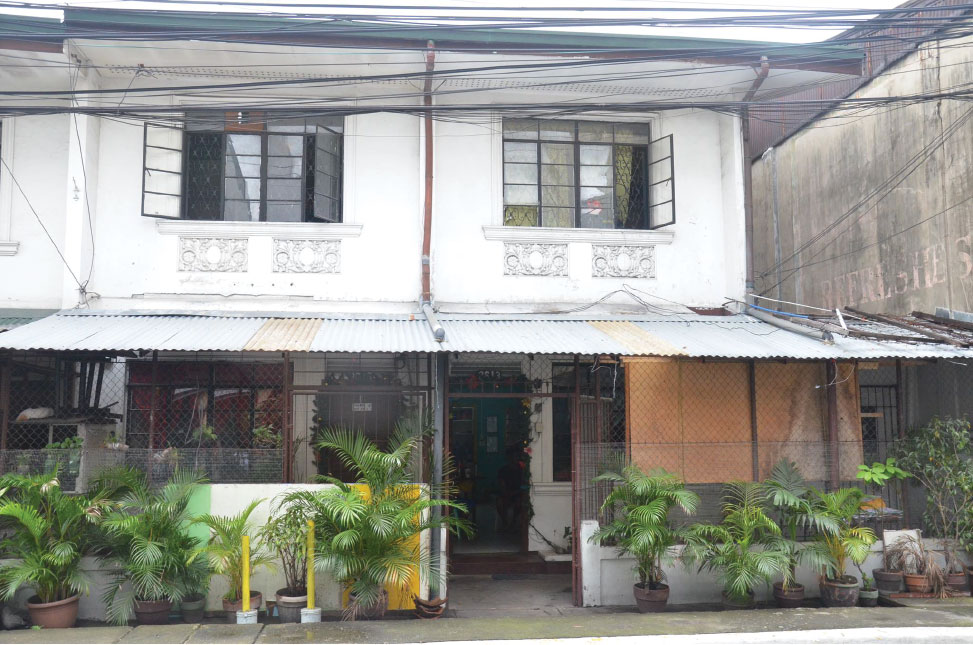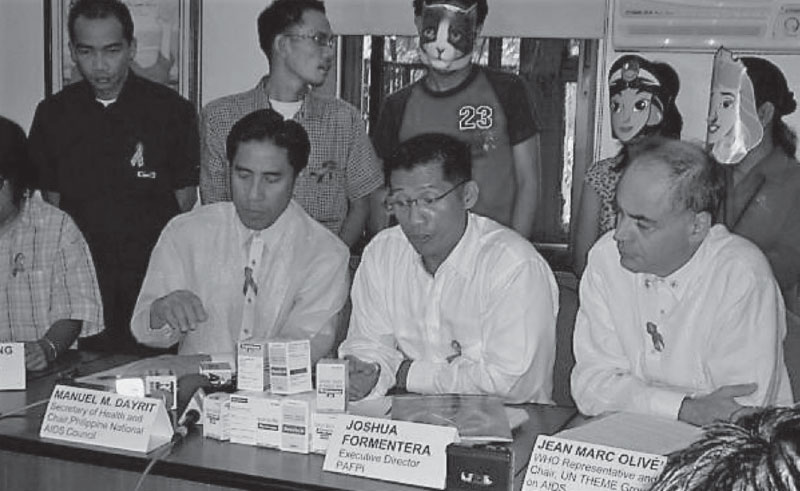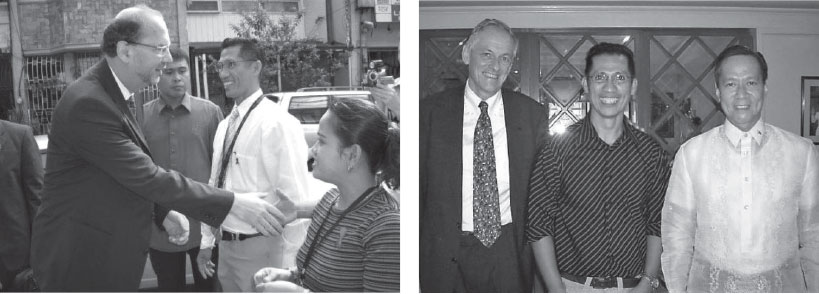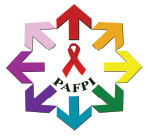in ensuring free Anti Retroviral treatment for HIV for all Filipinos. Our efforts have, however, not ended with this success.
For more than 15 years, PAFPI has provided temporary shelter for thousands of vulnerable people living with HIV.
PAFPI, POSITIVELY FIGHTING FOR PEOPLE LIVING WITH HIV
Positive Action Foundation Philippines Incorporated (PAFPI) was formed in 1998 by Joshua Formentera, the founding President, with the help of other Persons Living with HIV (PLHIVs) and their affected families. This non-profit organization aims to empower people with HIV / AIDS and their families to live a normal, happy, and productive life in the mainstream of a supportive society. The said organization also continues the fight for HIV Philippines and AIDS prevention and control by facilitating support responses to the needs of PLHIVs and their families through the provision of appropriate care and support services. PAFPI believes in the greater involvement of positive people in the national response to HIV Philippines and AIDS, a belief that actively pursues both the organization and advocacy programs.
PAFPI’s success lies in that most PLHIV volunteers that are employed as project staff in various projects. A majority of the staff and board members of the organization are HIV-positive. PAFPI has gained the recognition, trust, and confidence of PLHIVs and funding agencies as an organization directly involved in care and support services. The organization successfully conducted the First, Second, and Third National Consultation Processes with PLHIVs. It convened the First National Consensus Meeting, adopting the Manila Manifesto of Filipinos Living with HIV and AIDS as the basis of PAFPI’s future planning and HIV and AIDS advocacy and lobbying efforts.

PAFPI’s Abot Kamay Center in Malate, Manila
For more than twenty (20) years of its existence, PAFPI has provided temporary shelter for thousands of vulnerable people living with HIV in the Philippines and their families. PAFPI’s Abot Kamay Drop-in Center (AKDC) and Bahay Kanlungan (BKDC), literally “home–care”) provide a halfway home for these persons during a challenging time in their lives with the previous financial assistance of Union Aid APHEDA and MAC AIDS Foundation and current funding support from the USAID PEFPAR to PAFPI in partnership with the three Social Hygiene Clinics of Manila, Navotas and Valenzuela as project implementations that serve more on HIV testing, psychosocial services for MSMs and Transgender key populations infected with HIV, other advocacy activities such as reactivation of the local AIDS councils in the three project areas with specific provisions in line with the current national AIDS Medium Term Plan (7th AMTP 2023–2028).
Through the drop–in centers, PAFPI will contribute to a vision of a world where people living with HIV Philippines live healthy lives free from prejudice and discrimination.
Those who have benefited from this project include families with children, deported and returning Overseas Filipino Workers (OFWs), those people from the provinces who need to access ARV treatment and medical check–up in the treatment facilities, home and hospital visits, and nutritional program for PLHIVs. These centers also serve as venues for PAFPI–sponsored trainings, seminars, one-on-one counseling, HIV and treatment information, and referral services for treatment management. The demand for these services is booming due to the increasing rate of HIV infection in the country.
Currently, the organization is working hard to ensure that our shelters will be sustainable on a long–term basis.
of PLHIVs.
OUR HISTORY: HIV AIDS AND HOW WE CAME ABOUT
This non-profit organization has been instrumental in ensuring free Anti Retroviral treatment for HIV for all Filipinos. Our efforts have, however, not ended with this success. The free ARV treatment means that many more people can survive than ever before. These people are often met with rejection by friends and family. Many are kicked out of their home and find themselves alone in the streets.
For more than 15 years, PAFPI has provided temporary shelter for thousands of vulnerable people living with HIV Philippines and their families. PAFPI’s Abot–Kamay Drop–in Center (AK) and Bahay Kanlungan (BK, literally “home–care”) provide a half-way home for these persons during a very difficult time in their lives.
Through a drop-in center, PAFPI will contribute to a vision of a world where people living with HIV Philippines live healthy lives free from prejudice and discrimination.
Those who have benefited from this project include families with children, deported and returning Overseas Filipino Workers (OFWs), as well those people from the provinces who need to access ARV treatment and medical check-up in the cities. These centers also serve as venues for PAFPI-sponsored trainings, seminars and one-on-one counseling and HIV and treatment information.
The demands for these services are booming due to the increasing infection rate. We are working hard to ensure that our shelters will be sustainable on a long-term basis.


One of the foremost reason for its success is that some members of their staff are PLHIVs themselves, and this gives them a deeper understanding on the plights of PLHIVs, their families and significant others. Hence, peer-to-peer education support is one strong integral service that empowers PLHIVs by encouraging them to become productive members of the society. PAFPI also extends trainings, seminars and conferences that will capacitate PLHIVs to stand on their feet and go back to work.
The organization also extends counselling to affected family members and their significant others. Peer educators and PAFPI volunteers also conduct home visits to provide psychological support and care of HIV AIDS related symptoms at home.
PAFPI also engages their staff and members in its advocacy and prevention projects, or train them to become peer educators, or public speakers so that they may provide testimonials during various HIV AIDS related activities. In fact, there’s a positive speakers bureau that was composed of members and advocates who are working in the HIV and AIDS advocacy.
The scope of PAFPI’s services also extend to providing HIV AIDS related services like pre-departure orientation seminars for contract workers abroad or overseas Filipino workers. It was recognized, however, that PAFPI’s primary mission is to facilitate responses to the need of PLHIVs, yet it faces limitations in administering and distribution of HIV AIDS drugs and treatment.
Lastly, PAFPI keep a strong referral system to other non-governmental organizations, medical institutions like treatments hubs, clinics and other related organizations. Forging strong ties with other institutions will help members to have access to free, or subsidized drugs and treatment.
In terms of funding, it seeks funding and grants from various institutions and organizations to help gather enough funds for the sustainability of its projects and programs. PAFPI also facilitates informal procurement of generic antiretroviral (ARV) medicines from India, which provided a wider access to ARV drugs amongst PLHIVs in the Philippines. Lastly, PAFPI established a drop-in center called Bahay Kalungan that aims to provide temporary shelter to PLHIVs. The shelter also provides as a venue for the various PAFPI activities and trainings like counseling, care of common minor illness and symptoms at home, supporting positive behavioural change and peer education.
Now, after more than 15 years in operation, PAFPI has become one of the driving force in HIV AIDS advocacy in the Philippines. Needless to say, it has honed a strong sense of volunteerism in the pursuant of its commitment to provide a quality care, support and treatment services for PLHIVs.
